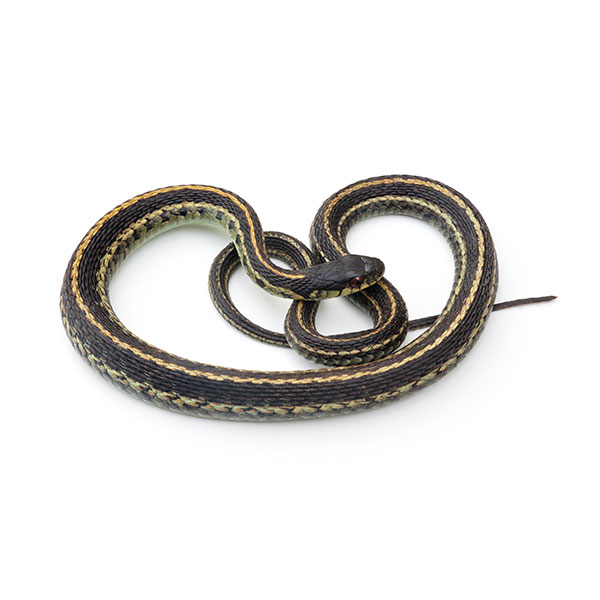Common Garter Snakes in Iowa
Often called garden snakes due to the closeness in name, garter snakes are one of the most common types of snakes in the nation. They are known for their characteristic stripe along the entire length of the spine, making them easy to identify. Common garter snakes are not poisonous and are generally completely harmless. These highly adaptable snakes are found throughout the nation and can survive in a variety of habitats and in a variety of climates.
Common Garter Snake Habitat
Garter snakes have dens that are often found under large rocks or structures. They are often seen along the perimeter of buildings, under stepping stones, or in rock fences. Unlike other types of snakes, garter snakes give birth to live young. Their diet is wide-ranging, but their prey typically includes snails, slugs, crickets, and other insects. Larger garter snakes have been known to eat birds, small mammals, and frogs. The common garter snake hibernates from late October until early April in natural borrows or holes and under rocks.
Common Garter Snake Behaviors, Threats, or Dangers
Garter snakes don’t have fangs and are not venomous, however, they do have small teeth and can bite. Their bite can become infected if not cleaned and cared for properly. Although the condition is rare, some people are allergic to garter snake saliva. Even though garter snakes are mostly harmless, they can cause quite a scare if encountered in your home or garden. Most people are startled and frightened when they are confronted by a snake outdoors. While generally shy and withdrawn, a garter snake will bite if accidentally stepped on. If you or someone else is bitten by a snake that you think could be venomous, contact your Poison Control Center (1-800-222-1222) or your health care provider as soon as possible.

